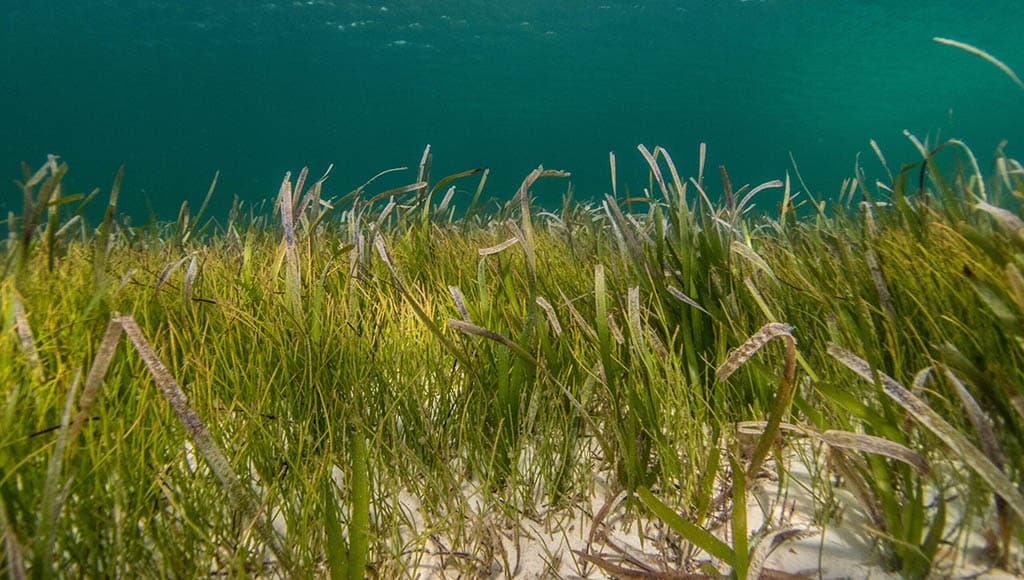Castro Marim salt pans to be used to grow seagrass which will purify water
Seagrass is due to be planted at the salt pans of Castro Marim in the eastern Algarve as part of a project designed to “capture harmful gases and purify the water”.
The project was announced by the start-up and spin-off of the University of the Algarve, BlueZ C Institute.
In a statement, the institute says that the salt pans will function as a nursery for seagrass, “which is in global decline and is essential to the coastal system”, both by capturing carbon and by purifying the water and removing nutrients.
“Restoring the seagrass ecosystem in Castro Marim’s salt marshes is the main aim of the Sal C project,” said the BlueZ C Institute – Association for Marine Conservation and Carbon Saving, which is working in partnership with the local council, Guadiana Eurocity and the MadeinSea company.
The project has a total investment of around €200,000 and is 75% financed by the Spanish foundation La Caixa, which owns Spain’s largest bank, CaixaBank, and Portugal’s BPI bank.
According to the press release, the seagrass is due to be planted “in the spring”, but the project already started being developed in November.
According to Rui Santos, president of the BlueZ C Institute, for the time being only one salt pan will be used, but the aim is to plant the seagrass in more salt pans and “take the project further afield, to any salt company in southern Europe”.
According to the institute, in addition to the positive environmental component, this is a project that will also help in the production of salt itself, because the water that goes into production is cleaner and purer.
On the other hand, they say, it will increase the value chain of one of the most important activities in Castro-Marine’s economy, traditional salt production.
By making the salt pans profitable, it will be possible to transform a seasonal activity into a permanent one and create new skilled jobs, the statement adds.
The deputy mayor of Castro Marim, Filomena Sintra, also quoted in the statement, emphasised that this project has been createdd because the region has managed, with its strong links to the University of the Algarve, to “retain knowledge and boost knowledge in the region itself”.
“The entrepreneurs are people who studied at UAlg and the very regeneration of the traditional salt business is a reflection of the importance and critical mass that the university brings to the region,” she said.
Finally, Filomena Sintra concludes that the Sal C project means “an opportunity for the international positioning of salt pans and salt marshes and for the incubation of many other projects in the Lower Guadiana region”.
Source: LUSA


























